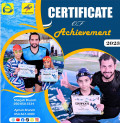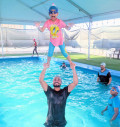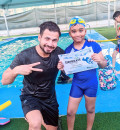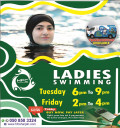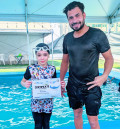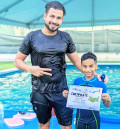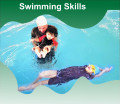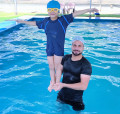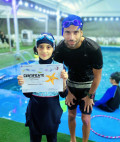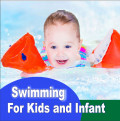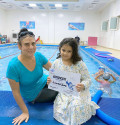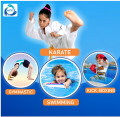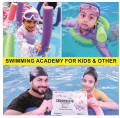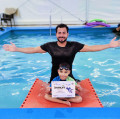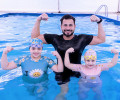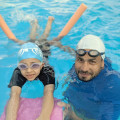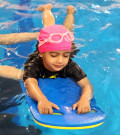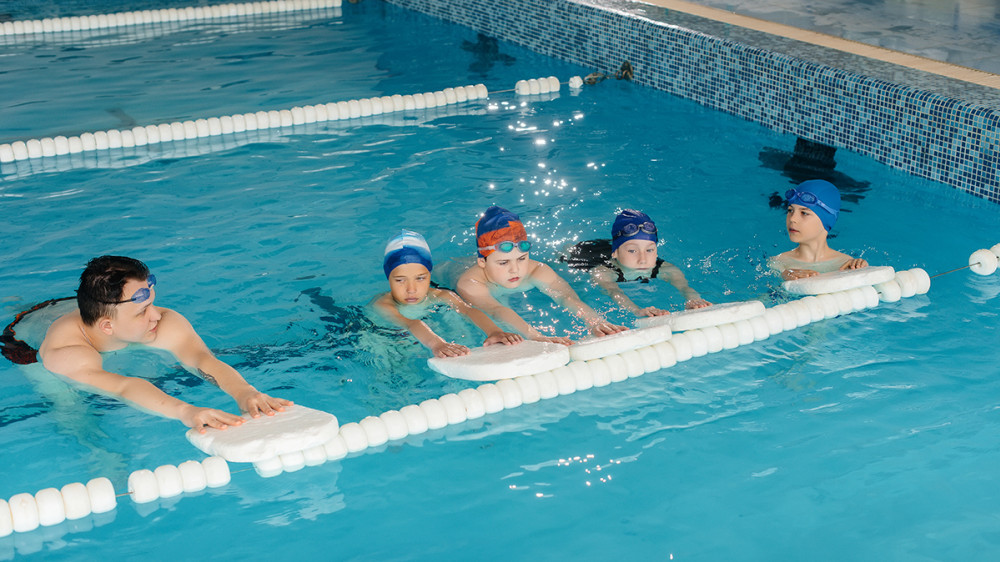
Swimming Empowers Students with Skills to Attain Higher Levels in Academics
2023-01-10 - Swimming
Children will acquire many beneficial skills by practising to swim in a fun way. It empowers them with skills that ensure they reach higher levels in academics. Moreover, the skills acquired is beneficial for them in the long run as it helps them to maintain a healthy lifestyle.
Swimming helps in neurological development and with the gentle resistance of water, the body is forced to work through it which further helps developing nerve fibres and muscle control and coordination.
The part of our brain consisting of the hippocampus, is a fundamental component of our brain’s learning and memory systems. Aerobic exercises, like swimming, are found to have a significant impact on the growth of the hippocampus. The hippocampus will increase, allowing more oxygen to flow into our brain through regular swimming. This will in turn help to boost our memory capacity. A strong memory is a definite key to retaining content-heavy information, which is necessary at school and work.
Studies prove that swimming has been a solution to problems faced by kids with ADD/ADHD. These kids have issues with impulse control, processing speed, gross and fine motor skills, and academic achievement due to focus problems. Swimming addresses these issues through the neurological and chemical responses in the brain. The best example of swimming benefiting kids with ADD/ADHD is Michael Phelps. Michael Phelps, an Olympic swimmer, has been open about his struggles with Attention Deficit Hyperactivity Disorder (ADHD) and how swimming has helped him manage his symptoms. Phelps has said that being in the water helps him focus and relax, and that the structure and routine of training have been beneficial for him. Additionally, swimming is a non-violent sport that can be a great form of exercise for kids with ADHD as it allows them to release energy and improve focus. Studies have also shown that physical activity can help reduce symptoms of ADHD in children.
Moreover, swimming at any age provides better blood flow to the brain. Studies have also proved that simply standing in the water chest deep significantly increases blood flow to the brain, and this has shown to increase cognitive function.
Swimming in freestyle or backstroke style with one arm in front of the head, the other arm down by the side, generates cross patterning movements. Swimming thus provides bilateral cross patterning movements, meaning that the right and left side of the body are doing opposite movements. This helps the brain develop nerve fibres between the hemispheres that “facilitate communication, feedback, and modulation,” according to Lana Whitehead, a lead swimming researcher in her pamphlet Water Smart Babies: Scientific Benefits of Baby Swim Lessons.
One of the most valuable skills a student gains by swimming is time management. Time management is an essential factor to excel well in the academics and this can be achieved through competitive swimming. Students enrolled in swimming lessons automatically learns time management as he/she must maintain a balance between academic learning and swimming practise. A child learning to divide their time for managing different activities is an invaluable talent which can be attained easily by swimming lessons.
Swimming is a high-intensity cardio workout that involves multiple muscle groups, and the activity also releases endorphins that help in minimizing depression and enhancing moods.
Another great influence that swimming has on our brain is that it helps sharpen our focus and concentration, ensuring we do not stray away from our tasks. Swimming can increase the attention span of children and swimmers are more likely to dismiss the distractions around them and focus better on their work. Children gain the perseverance by completing the laps and focusing on executing each stroke correctly. This will sharpen their attention and focus greatly.
Griffith Institute for Educational Research in Australia found in a study that young children who participate in early swimming achieve wide range of skills earlier than the others. The skills included language development, fine motor skills, confidence, physical development, and even math skills. The Griffith study states that the skills developed by being involved in swimming helped children be prepared for the transition to pre-school or grade school. Athletic swimmers use basic math skills like addition, subtraction, multiplication, and division to calculate their distance swam, laps, strokes, fly kicks, and more. Moreover, swimmers also concentrate a lot on breathing and coordination.
Even when there is no direct correlation between swimming and a kid’s academic performance, the activity does teach them the significance of taking challenges in life and preserving it. This quality can be used by them to overcome the challenges they face in learning tough subjects like mathematics. They learn the art of multitasking and coordination through swimming. They can easily utilise the skill in classrooms to take notes, listen to lectures and solve problems. It imparts them situational awareness and they can handle sensory learning well.
Swimming is a popular sport among children and teenagers. It should be a mandatory extra-curricular activity in schools.
- Swimming is beneficial for children as they learn to overcome obstacles in life and retain their dignity. This will help then to overcome difficulties they encounter when learning difficult subjects such as mathematics.
- Swimming greatly helps your child in losing weight and improving their health. It also helps people with chronic diseases and mental health issues.
- Swimming is a great cardio workout for kids because it works for multiple muscle groups at the same time, and it can also be an asset in managing weight.
- Swimming teaches students time management, which is important factor for achieving success in academics and can be learned by taking short breaks between activities.
- Swimming is a must-include activity for children to learn, as it can improve their overall physical and mental well-being.
- Swimming lessons can help young children overcome their fears, form new relationships, and overcome challenges making them fit and bold.
- Swimming helps your children learn about water safety and encourages them to be physically active.
Researchers have discovered that children who take swimming lessons at a young age have better academic performance.
.







.jpg)




















